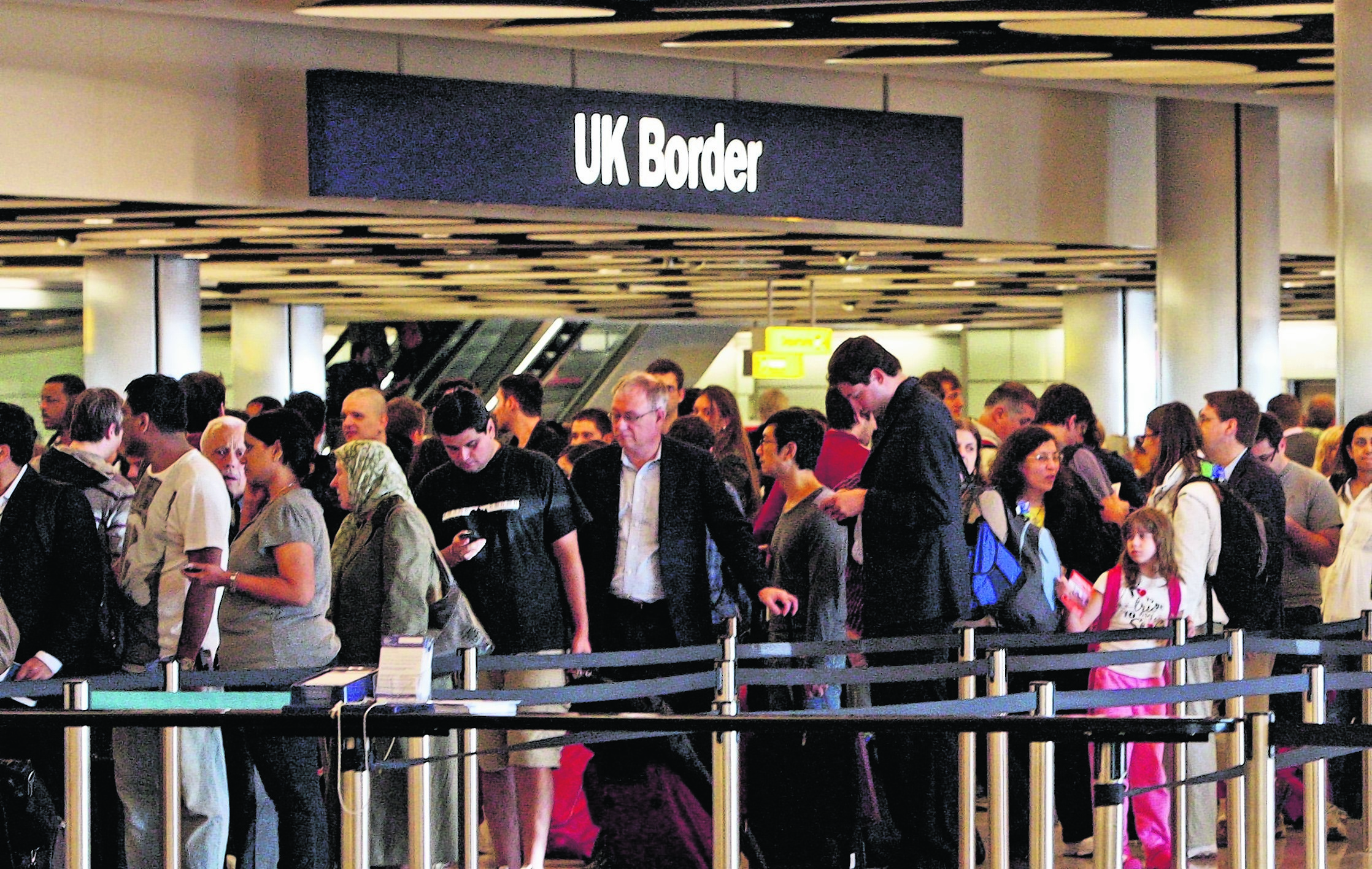Among the most commonly asked questions on Scottish independence from members of the public are on passports and border controls.
Will there be a Scottish passport? Would the remainder of the UK implement checks at the border? Would people living in Scotland lose their British citizenship?
And looking further afield, would Scots lose access to the UK network of consulates and embassies around the globe?
The Scottish Government position is that there will be a Scottish passport, and all UK citizens born here or living here at the point of independence will automatically be entitled to Scottish citizenship.
Scots-born UK citizens currently living outside of Scotland will also be considered Scottish citizens, the white paper says.
The UK Government has said it is “likely” it would accept dual nationality, where someone can be a citizen of both Britain and Scotland, but has not committed as yet to allowing all Brits living in Scotland to retain UK citizenship.
The question of border controls has been raised regularly during the referendum debate.
A number of leading Westminster politicians, including Home Secretary Theresa May and Labour leader Ed Miliband, have claimed that a controlled border may have to be erected between Scotland and England in the event of a Yes vote.
The current Conservative-Liberal Democrat coalition has adopted a tougher stance on immigration, largely due to the rise of the UK Independence Party (Ukip) south of the border.
First Minister Alex Salmond, however, wants to adopt a more liberal immigration policy than the UK Government.
The SNP believes annual net migration needs to rise to 24,000 to match the rate of working people to pensioners in Scotland.
It is that argument that has prompted the warnings from Mrs May and Mr Miliband, and others, that such a policy may create a “back door” for entry into England.
At present, Scotland is part of a Common Travel Area (CTA), along with UK neighbours England, Wales and Northern Ireland, and the Republic of Ireland, the Isle of Man, Jersey and Guernsey.
This allows people to move across the countries without passports and with minimal border controls.
The Scottish Government maintains that, as an independent nation, Scotland would remain part of the CTA, in the same way that Ireland has.
However, the UK Government says that will have to be negotiated, and it might be reluctant to share the CTA with Scotland if it was to pursue the more open type of immigration policy that Mr Salmond has advocated.
Further, the Scottish Government will not want to join the Schengen area, which allows freedom of movement across European states. Both the UK and Ireland have opt-outs of Schengen.
If Scotland was required to join Schengen as a condition of its EU membership, then a hard border with England would have to be erected.
The SNP also wants to offer incentives for people to move to more remote areas of Scotland, and would re-introduce the post-study work visa to encourage more foreign graduates to remain here after finishing further education.
The white paper says there are over 30,000 international students from more than 150 countries in Scotland.
Scott Blinder, director of the Migration Observatory at Oxford University, said it was “realistic” to aim to increase the net migration figures, but cautioned against setting specific targets and suggested there may be some difficulty, in practice, in encouraging people to remain in rural parts of the country.
“For one thing, measurement of net migration is based on estimates with substantial margins of error, so it might make more sense to think about a broad range.
“For another, net migration includes movements that are not directly susceptible to immigration policy controls, such as emigration of Scottish and British citizens and both immigration and emigration of EU nationals – assuming an independent Scotland would be within the EU.”
He added that Canada currently has a system for this that involves region-specific visas.
Mr Blinder said: “The challenge is setting up a system to enforce and monitor any geographic restrictions, so that someone with a visa entitling them to live and work only in a rural area of Scotland, say, does not pick up stakes and move to Edinburgh.”
On the question of the use of embassies and consulates, the Scottish Government has said an independent Scotland would have its own network of about 100 embassies and consulates.
Scotland already has overseas offices in cities including Brussels and Beijing.
The UK Government has said Scots would lose access to more than 270 embassies around the world and would not have the diplomatic “clout” that Britain enjoys.
